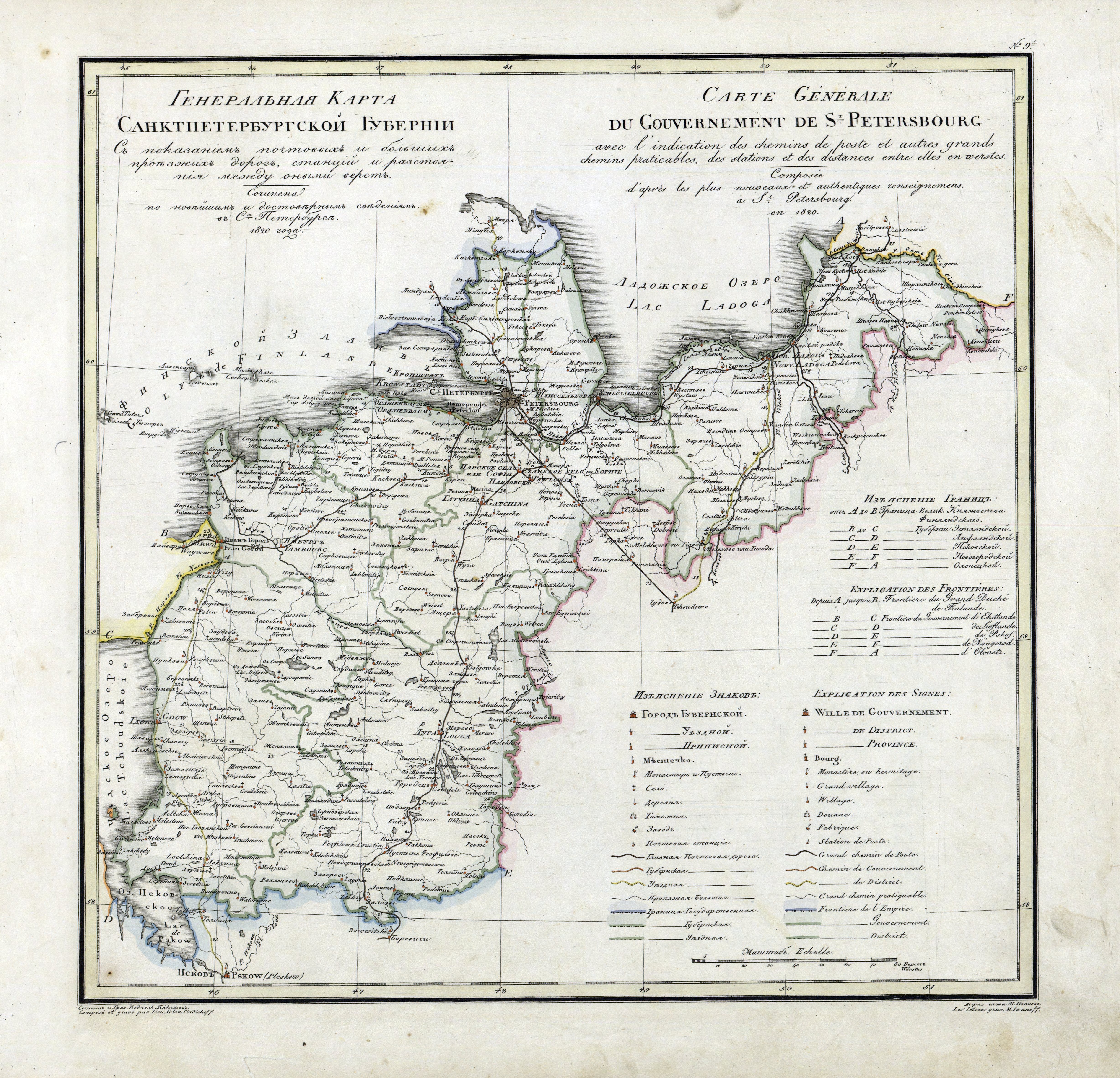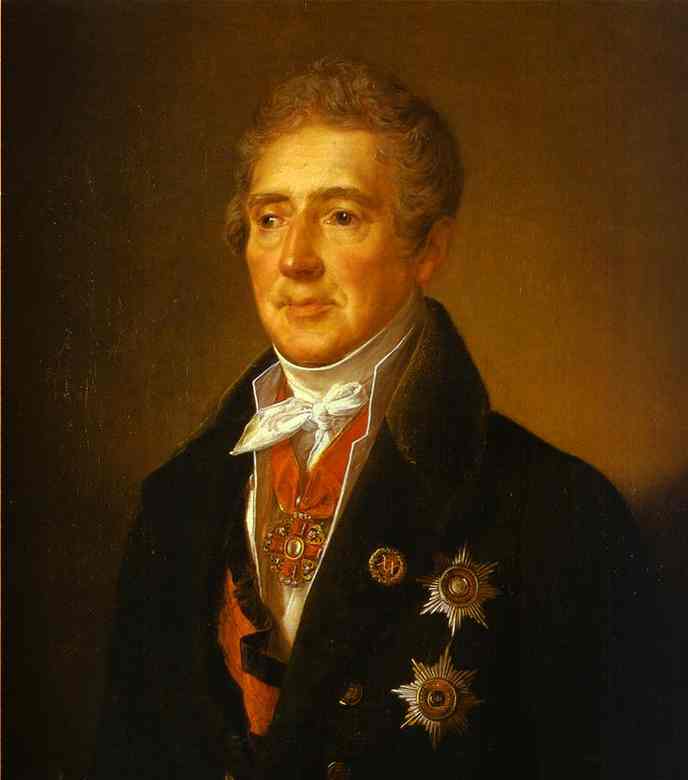|
Yakov Shakhovskoy
Prince Yakov Petrovich Shakhovskoy (; 8 October 1705 – 23 July 1777) was a Russian statesman. Prince Yakov Shakhovskoy was born in the family of Prince Pyotr Ivanovich Shakhovskoy, who died when Yakov was several months old. His mother remarried twice, but the names of her husbands are unknown. From the age of 9 years Yakov was brought up by his uncle, Prince Aleksey Shakhovskoy, who was at this time a guard officer. He started his military service in 1720 as a soldier of the Leib-Guard Semyonovsky Regiment. In 1725 he became a first lieutenant and in the reign of Peter II was promoted to captain. In 1730 he was transferred to the Сavalry guards. In the middle of 1730s Yakov Shakhovsky served under his uncle, who governed Malorossia from December 1731, and on his behalf often personally reported to Empress Anna Ioanovna and Duke Biron on the Ukrainian affairs. After the deaths of his uncle in April 1737, Shakhovsky was forced to leave the civil service and took part in ... [...More Info...] [...Related Items...] OR: [Wikipedia] [Google] [Baidu] |
Most Holy Synod
The Most Holy Governing Synod (, pre-reform orthography: ) was the highest governing body of the Russian Orthodox Church between 1721 and 1917. It was abolished following the February Revolution of 1917 and replaced with a restored patriarchate under Tikhon of Moscow. The jurisdiction of the Most Holy Synod extended over every kind of ecclesiastical question and over some partly secular matters. Peter I of Russia established the Synod on January 25, 1721 in the course of his church reform. Its establishment was followed by the abolition of the Patriarchate. The synod was composed partly of ecclesiastical persons, partly of laymen appointed by the Tsar. Members included the Metropolitans of Saint Petersburg, Moscow and Kiev, and the Exarch of Georgia. Originally, the Synod had ten ecclesiastical members, but the number later changed to twelve. Background A series of reforms by Peter the Great inspired the creation of the Most Holy Synod. The new Imperial Age saw radi ... [...More Info...] [...Related Items...] OR: [Wikipedia] [Google] [Baidu] |
Vasily Nesvitsky
Vasili, Vasily, Vasilii or Vasiliy (Russian: Василий) is a Russian masculine given name of Greek origin and corresponds to ''Basil''. It may refer to: *Vasily I of Moscow Grand Prince from 1389–1425 *Vasily II of Moscow Grand Prince from 1425–1462 *Vasili III of Russia Grand Prince from 1505–1533 *Vasili IV of Russia Tsar from 1606–1610 *Basil Fool for Christ (1469–1557), also known as Saint Basil, or Vasily Blazhenny *Vasily Alekseyev (1942–2011), Soviet weightlifter *Vasily Arkhipov (1926–1998), Soviet Naval officer in the Cuban Missile Crisis *Vasily Boldyrev (1875–1933), Russian general *Vasily Chapayev (1887–1969), Russian Army commander *Vasily Chuikov (1900–1982), Soviet marshal *Vasily Degtyaryov (1880–1949), Russian weapons designer and Major General *Vasily Dzhugashvili (1921–1962), Stalin's son *Vasili Golovachov (born 1948), Russian science fiction author *Vasily Grossman (1905–1964), Soviet writer and journalist * Vasily Ignatenko (196 ... [...More Info...] [...Related Items...] OR: [Wikipedia] [Google] [Baidu] |
Saint Petersburg Governorate
Saint Petersburg Governorate was a province (''guberniya'') of the Russian Empire, with its capital in Saint Petersburg. The governorate was composed of of area and 2,112,033 inhabitants. It was bordered by Governorate of Estonia, Estonian and Governorate of Livonia, Livonian Governorates to the west, Pskov Governorate to the south, Novgorod Governorate to the east, Olonets Governorate to the northeast, and Viipuri Province, Vyborg Governorate of the Grand Duchy of Finland to the north. The governorate covered most of the areas of modern Leningrad Oblast and Ida-Viru County, Ida-Viru, Jõgeva County, Jõgeva, Tartu County, Tartu, Põlva County, Põlva, and Võru County, Võru counties of Estonia. Establishment Ingermanland Governorate (, ''Ingermanlandskaya guberniya'') was created from the territories reconquered from the Swedish Empire in the Great Northern War. In 1704 prince Alexander Menshikov was appointed as its first governor, and in 1706 it was first Russian region des ... [...More Info...] [...Related Items...] OR: [Wikipedia] [Google] [Baidu] |
Vasily Saltykov
Vasili, Vasily, Vasilii or Vasiliy (Russian: Василий) is a Russian masculine given name of Greek origin and corresponds to ''Basil''. It may refer to: *Vasily I of Moscow Grand Prince from 1389–1425 *Vasily II of Moscow Grand Prince from 1425–1462 *Vasili III of Russia Grand Prince from 1505–1533 *Vasili IV of Russia Tsar from 1606–1610 *Basil Fool for Christ (1469–1557), also known as Saint Basil, or Vasily Blazhenny *Vasily Alekseyev (1942–2011), Soviet weightlifter *Vasily Arkhipov (1926–1998), Soviet Naval officer in the Cuban Missile Crisis *Vasily Boldyrev (1875–1933), Russian general *Vasily Chapayev (1887–1969), Russian Army commander *Vasily Chuikov (1900–1982), Soviet marshal *Vasily Degtyaryov (1880–1949), Russian weapons designer and Major General *Vasily Dzhugashvili (1921–1962), Stalin's son *Vasili Golovachov (born 1948), Russian science fiction author *Vasily Grossman (1905–1964), Soviet writer and journalist * Vasily Ignatenko (196 ... [...More Info...] [...Related Items...] OR: [Wikipedia] [Google] [Baidu] |
Aleksandr Glebov (prosecutor)
Aleksandr Glebov (born 15 July 1983) is a Russian alpine skier. He has competed at the 2014 Winter Olympics in Sochi Sochi ( rus, Сочи, p=ˈsotɕɪ, a=Ru-Сочи.ogg, from – ''seaside'') is the largest Resort town, resort city in Russia. The city is situated on the Sochi (river), Sochi River, along the Black Sea in the North Caucasus of Souther .... – Sochi 2014 Olympics References External links * * 1983 births Russian male alpine skiers Alpine skiers at the 2014 Winter Oly ...[...More Info...] [...Related Items...] OR: [Wikipedia] [Google] [Baidu] |
List Of Justice Ministers Of Imperial Russia ...
This is a list of ministers of justice of Russia. Russian Empire Provisional Government/Russian Republic Russian SFSR Russian Federation Timeline See also * Justice Minister * Russian Council of Ministers * Prosecutor General of Russia External links *List of Imperial Russian Ministers (1802-1917)* {{in lang, ru}Official site of the Public Prosecutor Justice Justice In its broadest sense, justice is the idea that individuals should be treated fairly. According to the ''Stanford Encyclopedia of Philosophy'', the most plausible candidate for a core definition comes from the ''Institutes (Justinian), Inst ... [...More Info...] [...Related Items...] OR: [Wikipedia] [Google] [Baidu] |
Moscow
Moscow is the Capital city, capital and List of cities and towns in Russia by population, largest city of Russia, standing on the Moskva (river), Moskva River in Central Russia. It has a population estimated at over 13 million residents within the city limits, over 19.1 million residents in the urban area, and over 21.5 million residents in Moscow metropolitan area, its metropolitan area. The city covers an area of , while the urban area covers , and the metropolitan area covers over . Moscow is among the world's List of largest cities, largest cities, being the List of European cities by population within city limits, most populous city entirely in Europe, the largest List of urban areas in Europe, urban and List of metropolitan areas in Europe, metropolitan area in Europe, and the largest city by land area on the European continent. First documented in 1147, Moscow became the capital of the Grand Principality of Moscow, which led the unification of the Russian lan ... [...More Info...] [...Related Items...] OR: [Wikipedia] [Google] [Baidu] |
Catherine II Of Russia
Catherine II. (born Princess Sophie of Anhalt-Zerbst; 2 May 172917 November 1796), most commonly known as Catherine the Great, was the reigning empress of Russia from 1762 to 1796. She came to power after overthrowing her husband, Peter III. Under her long reign, inspired by the ideas of the Enlightenment, Russia experienced a renaissance of culture and sciences, which led to the founding of many new cities, universities, and theatres, along with large-scale immigration from the rest of Europe and the recognition of Russia as one of the great powers of Europe. In her accession to power and her rule of the empire, Catherine often relied on her noble favourites, most notably Count Grigory Orlov and Grigory Potemkin. Assisted by highly successful generals such as Alexander Suvorov and Pyotr Rumyantsev, and admirals such as Samuel Greig and Fyodor Ushakov, she governed at a time when the Russian Empire was expanding rapidly by conquest and diplomacy. In the south, th ... [...More Info...] [...Related Items...] OR: [Wikipedia] [Google] [Baidu] |
Peter III Of Russia
Peter III Fyodorovich (; ) was Emperor of Russia from 5 January 1762 until 9 July of the same year, when he was overthrown by his wife, Catherine II (the Great). He was born in the German city of Kiel as Charles Peter Ulrich of Schleswig-Holstein-Gottorp (), the grandson of Peter the Great and great-grandson of Charles XI of Sweden. After a 186-day reign, Peter III was overthrown in a palace coup d'état orchestrated by his wife and soon died under unclear circumstances. The official cause proposed by Catherine's new government was that he died due to hemorrhoids. However, this explanation was met with skepticism, both in Russia and abroad, with notable critics such as Voltaire and d'Alembert expressing doubt about the plausibility of death from such a condition. The personality and activities of Peter III were long disregarded by historians and his figure was seen as purely negative, but since the 1990s, after the dissolution of the Soviet Union, more attention has been dir ... [...More Info...] [...Related Items...] OR: [Wikipedia] [Google] [Baidu] |
Seven Years' War
The Seven Years' War, 1756 to 1763, was a Great Power conflict fought primarily in Europe, with significant subsidiary campaigns in North America and South Asia. The protagonists were Kingdom of Great Britain, Great Britain and Kingdom of Prussia, Prussia versus Kingdom of France, France and Habsburg monarchy, Austria, the respective coalitions receiving by countries including Portuguese Empire, Portugal, Spanish Empire, Spain, Electorate of Saxony, Saxony, Age of Liberty, Sweden, and Russian Empire, Russia. Related conflicts include the Third Silesian War, French and Indian War, Carnatic wars, Third Carnatic War, Anglo-Spanish War (1762–1763), Anglo-Spanish War (1762–1763), and Spanish–Portuguese War (1762–1763), Spanish–Portuguese War. Although the War of the Austrian Succession ended with the Treaty of Aix-la-Chapelle (1748), none of the signatories were happy with the terms, and it was generally viewed as a temporary armistice. It led to a strategic realignment kn ... [...More Info...] [...Related Items...] OR: [Wikipedia] [Google] [Baidu] |





